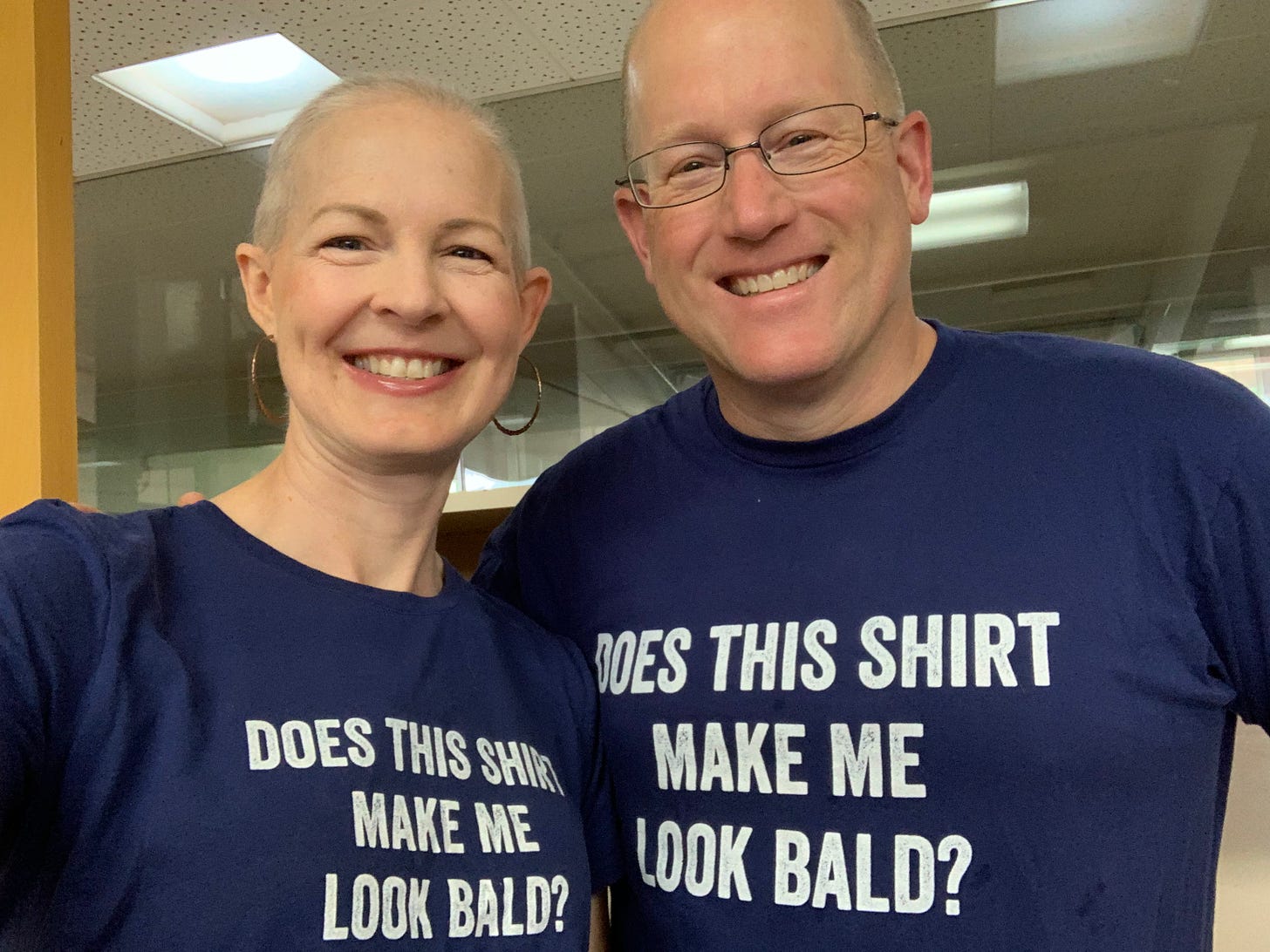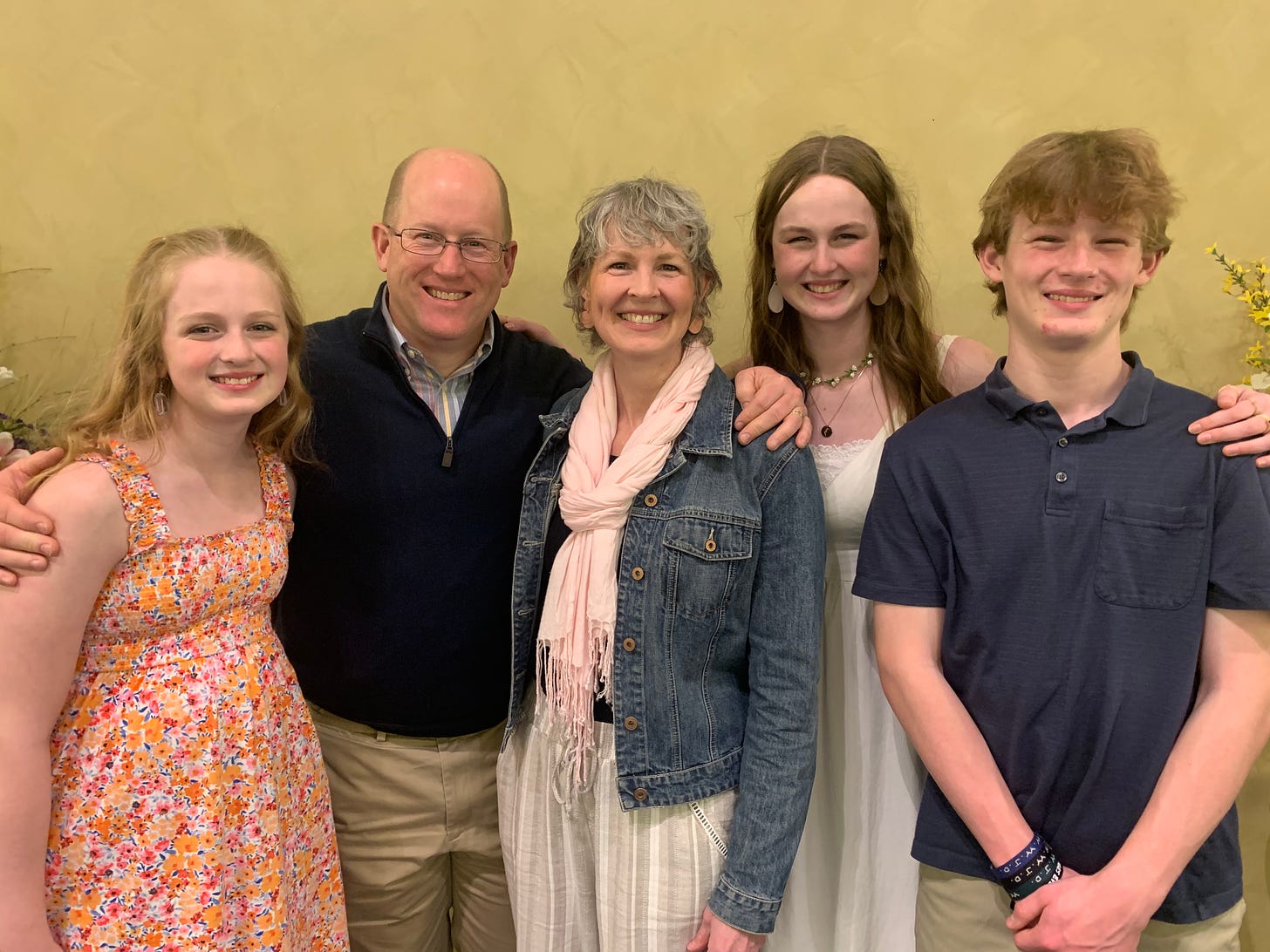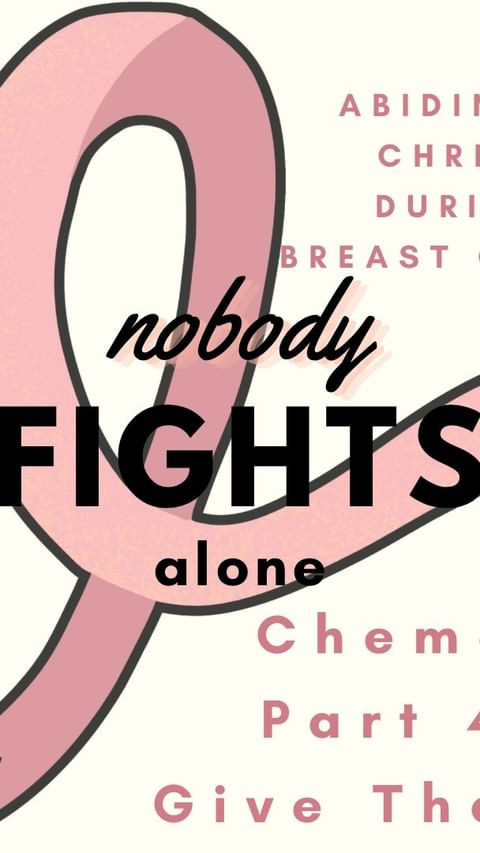Cameo: Beth Prewitt On Finding Peace in the Middle of A Storm
Homeschooler, pastor's wife, content creator, and mom of teens, talks about her personal growth and the newfound meaning and purpose she gained through her experience with breast cancer.
Because October is Breast Cancer Awareness Month, Belle Curve Stories is sharing inspiring stories of survivors who have demonstrated incredible grit, grace, and growth throughout their journeys. We are truly honored to share these stories. For our regular subscribers, you’ll notice a slight change in format — these features, which we’re calling "Cameos," are presented in a Q&A style. In this issue, we introduce you to Beth Prewitt, 45, homeschooler, pastor’s wife, and mom of teens.
Beth, thank you for agreeing to share your story with us. How did you discover you had breast cancer?
Doctors recommend that women get mammograms at 40. I turned 40, and then 2020 happened, and I just put it off. I didn’t get my first mammogram until 2022 at the age of 43. They told me that I had dense tissue, and I needed to get an ultrasound. I kind of thought that was ridiculous. I have a lot of skepticism around the medical system, plus I thought “I’m very healthy, I’m young, and there’s no breast cancer in my family.” I figured there was no reason to get an ultrasound, so I blew it off. Four months later, in September, I went to my annual general checkup, and the doctor said, “You really should just go get that ultrasound. It’ll be better to know.”
We have images in our mind of who gets cancer, and we always think it’s not us, even when it is us.
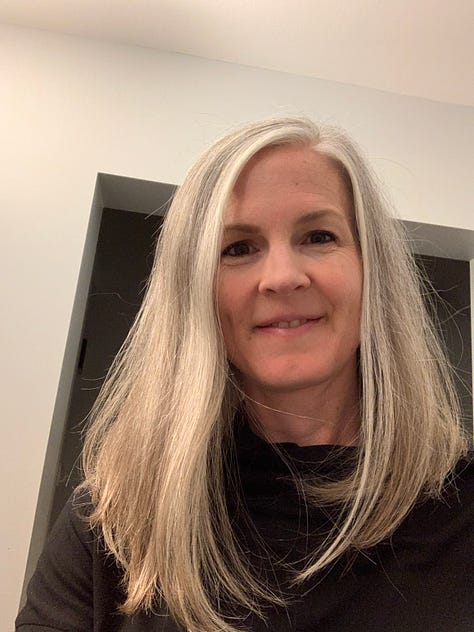
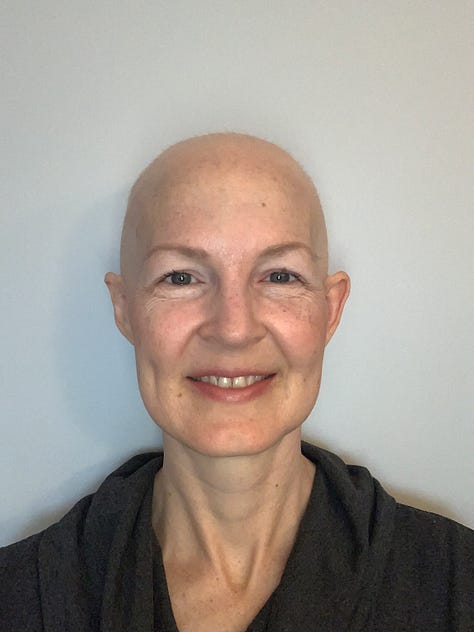
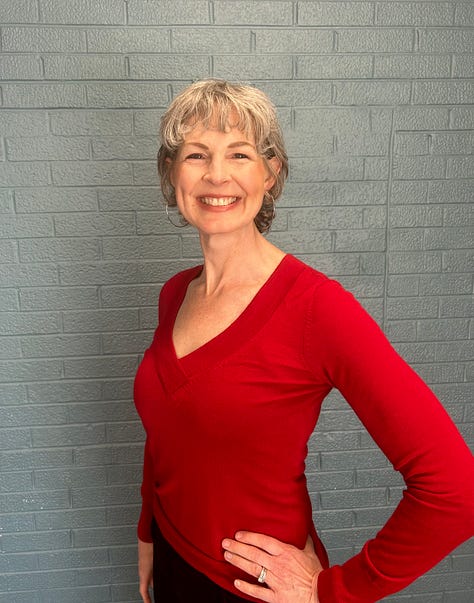
The ultrasound showed a lump. The biopsy results showed that it was cancer, and it was fast growing. They wanted to do surgery (lumpectomy) right away, ideally within two weeks. But the medical field doesn’t work that quickly. My surgery was in October, a month after I was diagnosed.
I am thankful for the timing of my diagnosis. If I had gotten my ultrasound right after my mammogram, would it have been as large as it was and would it have been able to be detected? Once I was diagnosed, my whole world shifted. At least I got to enjoy my summer.
I homeschool my kids, and that’s a full time job. I had all these plans for things that I thought were going to happen that year and they didn't, because that year was cancer. I was diagnosed in September; I had a lumpectomy in October; I started chemo at the beginning of December; I did four months of chemo; I did radiation in April and May, and then the school year was over. The school year framed my breast cancer journey.
Recently I heard someone talk about how cancer diagnoses are disruptors. Some cancer diagnoses are life threatening, but at a minimum, they’re disruptors. They disrupt your whole life.
What were some of the hardest aspects of your treatment?
What’s hard about breast cancer is that the treatment process takes over your whole body.
Chemo is a very intense road. It’s very counterintuitive to go through this journey where you’re trying to get healthier, but you have to put a lot of stress on your body to do that. It’s like choosing to get the worst flu you can imagine. Then once you’re healthy, and you recover from the flu, you voluntarily go back and do it again, and you just keep going back to get the same flu. But it gets worse and worse every chemo cycle and it takes a toll emotionally and mentally. You know what’s coming, and you have to do it anyway. It’s cyclical. That’s one of the hardest aspects of the chemo process. I didn’t want to go through it, and my family didn't want to watch me go through it. Every time.
The tiredness that came from radiation was really nothing compared to chemo, but it was a physically exhausting thing. When I finished my friends said, “I'm so excited that you’re done,” but I felt like I just wanted to sit and cry. I needed to grieve. My body was still sick and not yet recovered. I was still bald. My hair loss was very symbolic to me of what my body was doing. It was symbolic of the process. It wasn’t until months later that I could feel thankful that I was done.
One of the other things that is hard to navigate with breast cancer is the fear of reoccurrence. Even if you only have a five percent chance of reoccurrence, it’s still always a possibility. When you’re going to doctors for follow up, you’re always thinking “Are they going to find anything?” It’s hard to live like that. There are studies that talk about how anxiety and stress can increase cancer in your body. You must find a way to be at peace and move forward. Recognizing that a lot of good came from my season of breast cancer has helped me. I know I grew a lot as a person. My faith in God grew a lot. I saw God do a lot of positive things in my kids. If my breast cancer ever comes back again, I know there can still be good coming from it, so I don’t have to fear that or worry about that.
How did the kids respond to your diagnosis and treatment?
For any kid whose parent has cancer, it’s going to be incredibly hard and very traumatic. As adults, we can barely communicate how we’re processing things like breast cancer. Kids are still learning their emotions. If they can’t communicate with words, it comes out in other ways and it’s different for different kids. I was very aware during the whole season that they did not know how to process what was happening. So, I tried to be very open with how I was feeling and I hoped that as I gave language to my emotions, my kids would pick up some language to use for themselves.
Were you able to continue homeschooling?
Yes. No matter what job you do or what educational path you’re pursuing, life's going to happen, and there’s going be things that hinder that. You do the best you can. My kids were old enough to have some independence, and we had some good community support. We had things that were already in place that helped make that happen and we gave ourselves a lot of grace and a lot of space.
What did you find most surprising about your experience?
I was very surprised at how hard it was for me to be on the receiving end of love, support, and prayers. My husband is in ministry. One of us has been in ministry through our whole marriage, which has been 20 plus years, so we spent good portion of our time pouring out by praying for others, caring for others, and helping others. Our friends, family, and church really rallied around us and loved us really well, but it was hard. There was one point where I wanted to say, “Can you just not pray for me? I’m really fine. I don’t need prayers.” My husband responded by saying, “Well, you’re still bald and you’re going through chemo, so I’m pretty sure you still need prayers.” I don’t know how people face cancer and don’t tell anybody. I have no idea how people navigate without community and support.
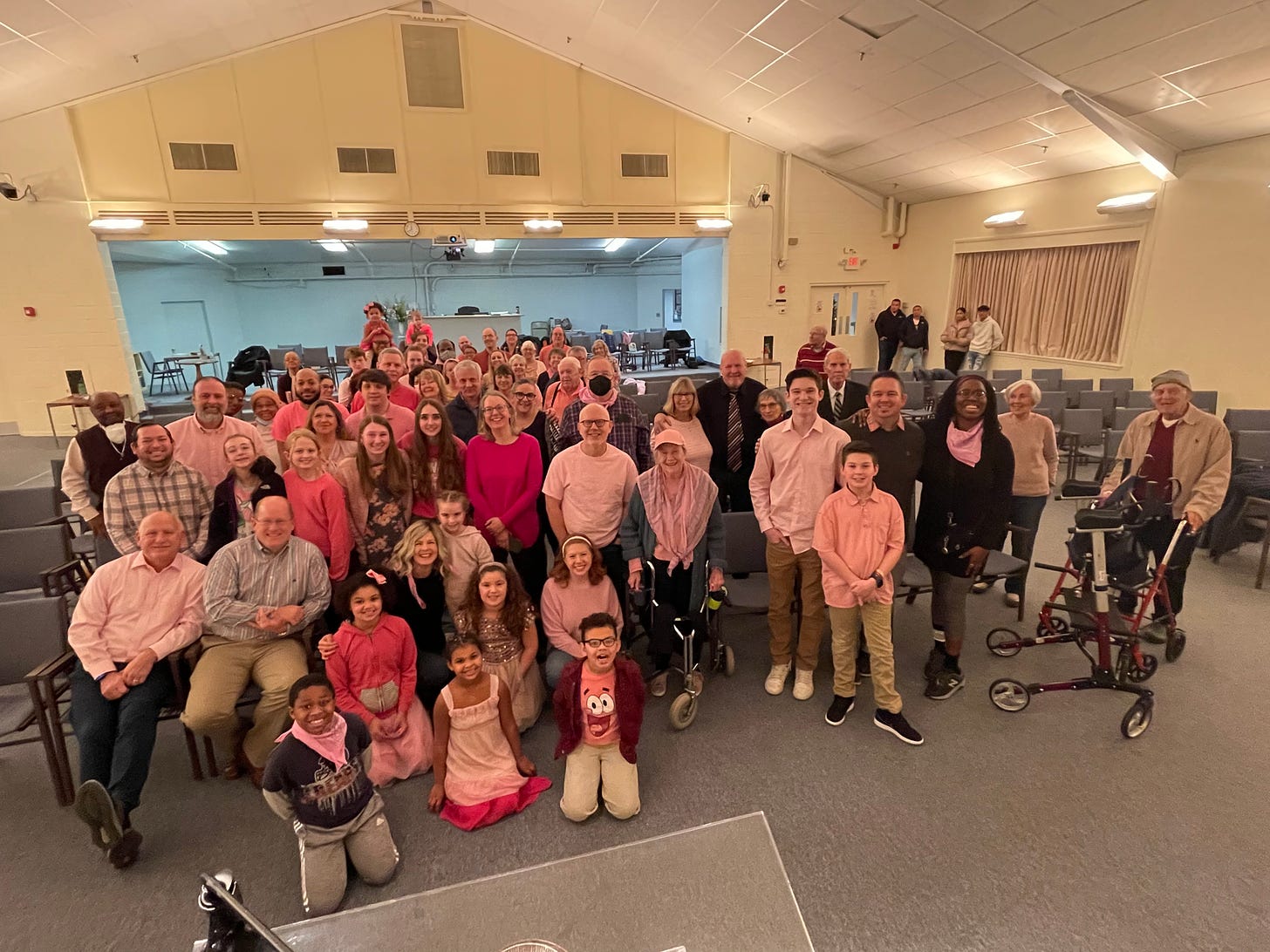
What would you like friends and family of people battling cancer to know?
After my first round of chemo, everyone was so nice. They were texting, “How do you feel? How do you feel? How do you feel,” and I wanted to say “I feel awful. I feel awful. I feel awful.” Rehearsing that for weeks didn’t help me. Finally I said, “Okay, no one can ask me how I feel. I’m gonna feel awful. We know it and we can’t fix it. You can ask me all the other questions. Ask me what I’m thankful for.” When people asked me what I was thankful for, it really helped to reframe my mindset. It was also nice when people simply texted, “Thinking about you,” or “Hope your day is going okay” or when they would send me something encouraging like jokes or scripture or a song.
What advice do you have for people who are newly diagnosed and just beginning their breast cancer journey?
It’s really important to find a way to connect with people who have walked through breast cancer. I had several friends who had walked through breast cancer, and I called them and picked their brains. I asked them all the questions, and that was helpful. Even though their cancers were very different, and their treatment plans were different, it was helpful to have that connection, because they were able to provide empathy. There is a Facebook group for The Licorice Project, which is a community for women who are dealing with breast cancer in Chicagoland. That was very helpful for asking logistical questions such as: “Where did you get your wig?” or “What do you know about this doctor” or “What did you find that helped you with chemo?” or “Did you have this side effect?” Facebook groups can be a real mixed bag, but the tone of grace, love, welcoming, and acceptance in that breast cancer group was beautiful. Having a safe place like that was really helpful.
People need to be able to have support, be able to ask for help, and then be able to accept help. Try to accept the help that people offer.
What has the breast cancer journey taught you about yourself?
I learned that sometimes I need to just box up something and not think about it for the moment. When I was diagnosed, I knew I was going to have surgery, and I had heard chemo was coming. I just boxed up that chemo idea. I said to myself, “I’m not going to think about that at all until surgery is done.” And I didn’t. I was even hopeful. “Maybe I won’t have to do chemo,” I thought, which was ridiculous. There was no reason to have that hope. When it was time to do chemo, it was time to do chemo. I thought, “Okay, I’m not gonna think about anything else. I’m just gonna go through this season.” Before cancer, I felt like it was unhealthy to box things up, but sometimes we need to do that so we can get through one thing at a time.
I also learned that it is possible to walk in peace and to have an actual feeling of peace despite a storm around you. When everything is hard, physically, mentally, emotionally, and spiritually, I can still have a peace that transcends all that. For me, that peace comes from God and my faith in God. I think for so many, anxiety is a huge issue. It’s a huge issue in our culture.
What are you're doing these days?
I started an Instagram account (@momsabiding) in March with the hopes of encouraging moms to be able to walk in peace, no matter what’s happening in their lives. This month I’ve been using that platform to encourage people as they’re navigating breast cancer or have loved ones navigating breast cancer.
One thing that’s been on my heart since I finished chemo and radiation is that I really want to help others navigate breast cancer. In honor of October being Breast Cancer Awareness Month, I’ve been posting videos on Instagram of myself telling my story. I know everyone’s story is different and everyone is going to have very different challenges, lessons, high points, and low points. I’m sharing my story in hopes that it will help someone else navigate their own breast cancer journey, or help someone who has loved ones navigating a breast cancer journey know how to help and support them better.
Before I had breast cancer, I never heard anyone talking about their journey. People would say they had it, but they didn’t share the actual details of what it was like to walk through it. I look back and think about friends who I knew had breast cancer and think “I should have been helping them so much more, or doing things differently,” but I just didn't know.
One in eight women are going to get breast cancer. If you look around, that’s a lot of women. How can we be better prepared and equipped to support them?
As told to and edited by Teresa Bellock and Sandra Ditore.
Beth Prewitt, 45, and her husband Brian live in Rolling Meadows, Illinois, with their three teenage children. Beth homeschools her children, is a homeschool community leader and a public speaker, and recently became a content creator, publishing personal stories and inspirational posts on her Instagram account, @momsabiding. For information about Beth’s upcoming speaking engagements and availability, email Beth at beth@bethprewitt.com.




